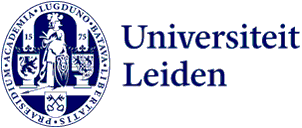
Leiden and African students share knowledge and experiences in online Global Health course
Online teaching has made it much easier for international students to join in our courses. The Leiden minor in Global Health, for instance. Students from Tanzania, Rwanda, Uganda and Malawi logged on and made a valuable contribution with their knowledge, about tropical diseases, for instance.
The half minor in Global Health is a full-time ten-week online course led by parasitologists, infectiologists and other medics from Leiden (see below). It begins with a general introduction to a wide range of health topics such as tropical diseases and medical malpractice. Central to the course is question of how logistical and financial resources can be used to improve the health of different population groups.
About the course
The half minor in Global Health is led by parasitologist Lisette van Lieshout, Professor of Obstetrics Thomas van den Akker, gynaecologist Jogchum Beltman and Professor of Infectious Diseases Leo Visser. The course is for third-year students doing a bachelor’s degree in Medicine and master’s students on the Biomedical Sciences and Clinical Technology programmes. For more information, see Global Health or contact Half-minors@Lumc.nl.
New insights
Alongside the 20 Leiden students, were five students from different partner institutions in Tanzania, Rwanda, Malawi and Uganda. They shared their medical knowledge and experience with the Dutch students, and learned in turn about the Dutch perspective on global health themes. This generated new insights for all the students, said infectiologist Meta Roestenberg, who contributed to the minor.

Tropical diseases
Tanzanian medical students Doreen Msemakweli and Ellyagape Paul spoke about their experience of the course. Doreen: ‘I wanted to learn how the approach to health and health care around the world differs from the perspective we have in my home country.’ Ellyagape added: ‘In Tanzania we gain clinical experience much sooner than Dutch students do. We were able to share our insights about certain topics based on the practice. We encounter many tropical diseases, for instance, and are familiar with patient experiences.’
Make a difference
The students were very interested in the technological developments in health care. Ellyagape: ‘We have to use this knowledge and technology to improve the health care in our own country. With a tropical disease like malaria, that can help prevent the spread of the disease. The same applies to the treatment of breast cancer, for example, a disease that is often discovered too late in Tanzania.’ Doreen: ‘With good education and government policy I think we really can make a difference. That’s what I’ve learned from the Global Health course.’

Community
Roestenberg is also very enthusiastic about the mix of different backgrounds. ‘Exchanging different experiences and cultures helped improve everyone’s understanding of global health issues.’ A real community was formed, with students logging in well before the start of the online classes so they’d have time to chat with the other participants. ‘And that was by no means only about the course, but about themselves too.’
